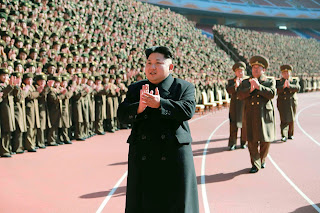It is easy to become frustrated as one reviews the inventory of seemingly failed or inadequate policy recommendations for how the United States might more effectively deal with North Korea. But frustration cannot be allowed to turn into fatalism, and important interests should not fester unattended until they metastasize into an even larger problem that will inevitably require even more dramatic, bold, and costly responses.
North Korea’s efforts to develop nuclear weapons capabilities continue unchecked and complicate both military and diplomatic options for pursuing denuclearization. Michel Wallerstein showcases a clear inventory of North Korea’s continued efforts and the limited policy options for the United States, as do a range of papers for the Johns Hopkins University SAIS U.S.-Korea Institute’s nuclear futures project.
The inventory of possible measures for dealing with North Korea at this stage fall into four main categories:
1) The squeezers, who hope that tougher sanctions will force North Korea to give up its nuclear capabilities. For instance, Sue Terry, writing for the National Bureau of Asian Research, recommends that the United States “double down on sanctions by enforcing against North Korea the kind of sanctions that brought Iran to the negotiating table.” This approach mirrors the intent of several sanctions bills under consideration in the U.S. Congress.
2) The China firsters, who anticipate that private Chinese expressions of disgust and frustration with North Korea can be integrated into China’s official policy and be leveraged to achieve a grand bargain that results in the elimination of the North Korean threat, either through Chinese acceptance of Korean unification or replacement of the Kim Jong-un regime with a North Korean leadership that respects the boundaries imposed by China’s strategic interests. For instance, Richard Haass, president of the Council on Foreign Relations, has advocated that Beijing and Washington reach strategic consensus on Korean reunification. There is a broad consensus on the need to work with China in the U.S. policy community, but there is disagreement on what could realistically be achieved with such an approach.
3) The saboteurs, who hope to take advantage of North Korea’s pursuit of provocations, nuclear tests, and human rights violations to undermine international and domestic support for the Kim regime. Harvard University’s Jieun Baek argues for a combination of covert information operations to collaborate with internal dissidents, strengthening of nongovernmental organizations that train North Korean refugees in information dissemination and business skills, and training of North Korean defectors in journalism, information technology, and social media. There is also the temptation to weaken North Korea’s legitimacy through naming and shaming regarding the country’s human rights failings as exposed by the UN Commission of Inquiry on North Korean human rights.




No comments:
Post a Comment